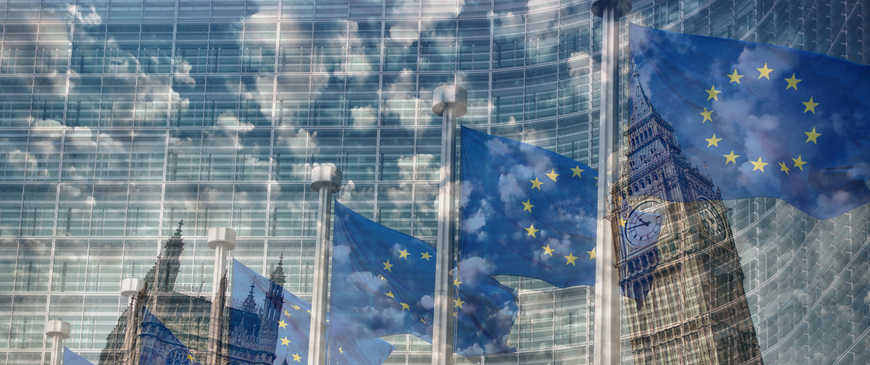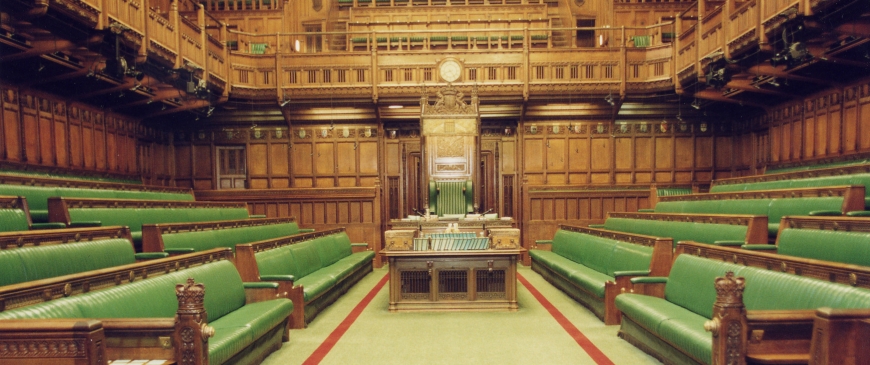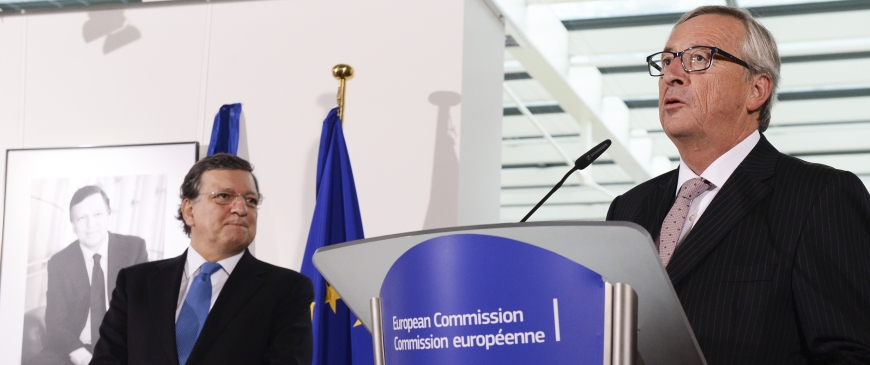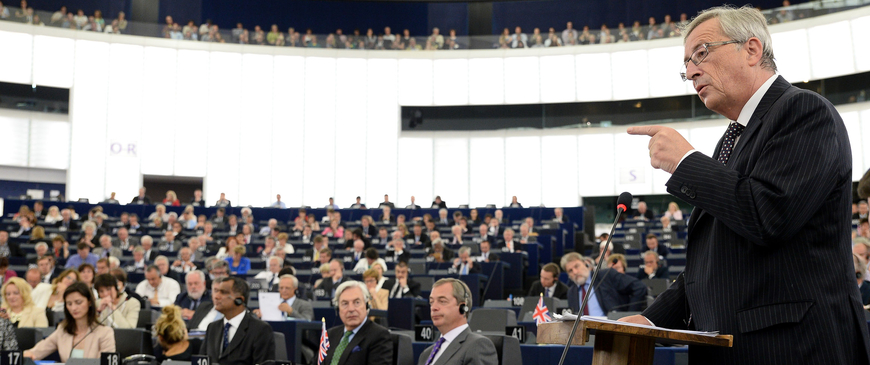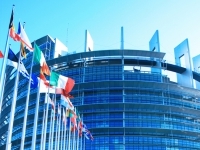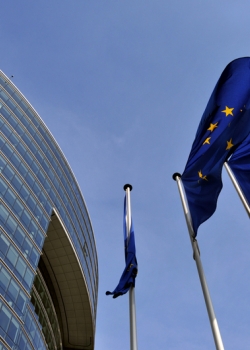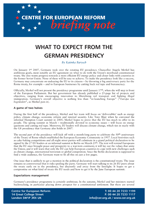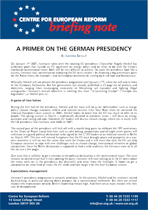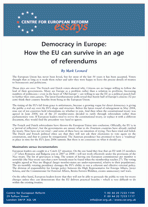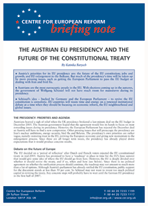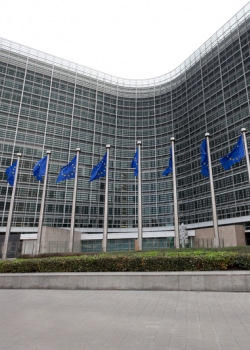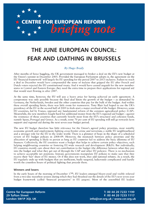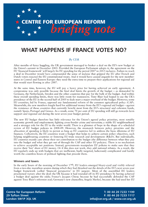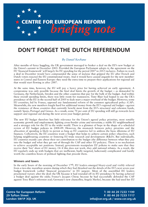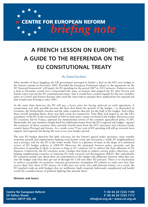EU treaties & institutions
We need a new pro-Europeanism
09 February 2007
“We are not the first who meaning the best have incurred the worst”, is a line from tragic heroine Cordelia in Shakespeare’s King Lear. But it could apply equally well to the architects of the EU’s failed constitutional treaty, also a tragic but unfinished saga.
Time to shake up the European Council
01 February 2007
The European Council, the EU’s supreme political authority, is malfunctioning. Europe’s most powerful leaders meet four times a year in the Council to review the EU’s work and and give political direction to the Commission, Parliament and Council of Ministers.
Issue 52 - 2007
26 January 2007
- Time to shake up the European Council, David Harrison
- French candidates miss the point on globalisation, Patrick Artus, Elie Cohen and Jean Pisani-Ferry
- Schengen should go west as well as east, Hugo Brady
What to expect from the German presidency
03 January 2007
On 1 January 2007, Germany took over the rotating EU presidency. Chancellor Angela Merkel has ambitious goals, most notably an EU agreement on what to do with the Union’s moribund constitutional treaty.
A primer on the German presidency
21 December 2006
On January 1st 2007, Germany takes over the rotating EU presidency. Chancellor Angela Merkel has ambitious goals that include an EU agreement on energy policy and on what to do with the Union's moribund constitutional treaty. Both will be very difficult to achieve.
Global challenges will drive European reform
02 October 2006
When the first CER bulletin was published, almost a decade ago, the emphasis was firmly on the word ‘reform’. The EU had fulfilled its original purpose. Western Europe was an area of security, peace and, in the main, prosperity.
Democracy in Europe: How the EU can survive in an age of referendums
05 May 2006
The European Union has never been loved, but for most of the last 50 years it has been accepted. Voters thought that as long as it made them richer and safer they were happy to leave the precise details of treaties to bureaucrats and politicians.
What future for free trade in services?
03 April 2006
The controversy that has engulfed the Commission’s draft services directive is hardly surprising: the establishment of a single EU market in services was always going to generate more opposition than the liberalisation of trade in goods.
The Austrian EU presidency and the future of the constitutional treaty
24 January 2006
Austrians heaved a sigh of relief when the UK presidency brokered a last-minute deal on the EU budget in December 2005. The Austrian government hoped that the agreement would free its hands to focus on more rewarding issues during its presidency.
Liberal versus social Europe
01 August 2005
Europe is in the grip of a fundamental debate about its economic future, or at least that is what some politicians and many journalists would have us believe.
Europe’s social dilemma
01 August 2005
Of all the items on the agenda of the British EU presidency, perhaps the least expected is a debate on ‘social Europe’. Tired of being crudely caricatured as ‘neoliberal’, Tony Blair has invited EU leaders to an informal summit in October to discuss the future of Europe’s social model.
Issue 43 - 2005
29 July 2005
- Liberal versus social Europe, Katinka Barysch
- A bad European dream, Daniel Keohane
- Europe’s social dilemma, Alasdair Murray
When the dust settles
03 June 2005
The French and Dutch rejections of the constitutional treaty throw into stark relief the divisions between two groups of EU countries. On one side are countries - including Britain, Ireland, the Nordic three plus the majority of the new member-states - who (crudely put) favour a more economically liberal and diverse European Union.
Europe beyond the referendums
01 June 2005
The French and Dutch have not only stopped the passage of the constitutional treaty, but also, quite probably, the wave of European integration that began 20 years ago with Jacques Delors, the single market and the Single European Act.
The June European Council: Fear and loathing in Brussels?
01 June 2005
The French and Dutch No votes on the EU constitutional treaty have rocked Europe's political establishment. The EU's heads of government will debate the future of the document at their summit – and the equally fractious issue of the EU's budget – in Brussels on 16 June 2005.
Issue 42 - 2005
27 May 2005
- Europe beyond the referendums, Charles Grant
- Unshackling services is the key to Europe's economic future, Digby Jones
- When the dust settles, Alasdair Murray
What happens if France votes No?
02 May 2005
In just over two weeks France will hold a referendum on the EU constitutional treaty. The outcome of the 29 May 2005 referendum remains on a knife-edge with the latest polls suggesting the country is split down the middle.
Don't forget the Dutch referendum
02 May 2005
Three days after the French vote on the EU constitutional treaty on 29 May 2005 the Netherlands will hold its referendum. Current opinion polls predict that the Dutch will reject the treaty.
A French lesson for Europe? A guide to the referenda on the EU constitutional treaty
01 April 2005
On 29 May 2005 France will hold the second of ten national referenda on the EU constitutional treaty. The 25 EU governments have until November 2006 to ratify the treaty.
Will the French vote 'Non'
01 February 2005
President Jacques Chirac recently declared that the French referendum on the EU's constitutional treaty would take place "before the summer", and not in the second half of 2005 as previously planned.

